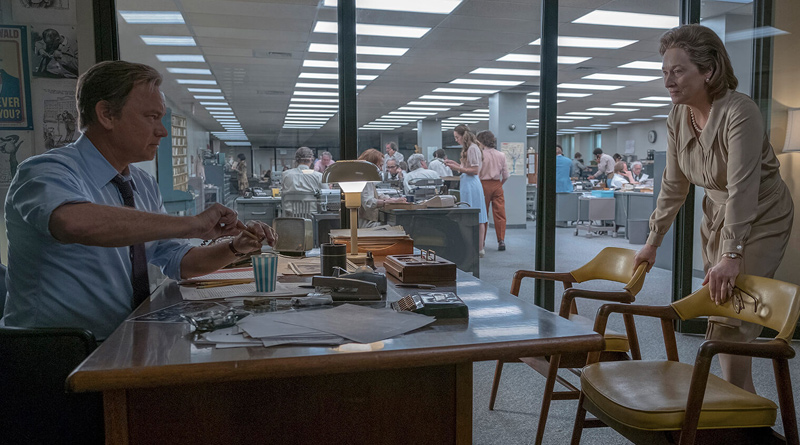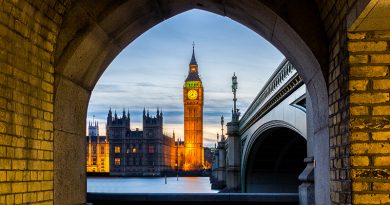Heroes and villains – Journalists on Screen
Image credit: Fox Movies
You wouldn’t think it (especially if you were to spend some time reading the vitriol directed at them in online comments) but in the UK public trust in journalists has reached an all-time high.
Yes, according to the 2017 Ipsos MORI Veracity Index poll, which has been canvassing opinion on trust in UK professions since 1983, 27% of survey respondents trust journalists to tell the truth. Now, I know what you’re thinking: 27% is miserably low for a high score, particularly when bankers and business leaders are held in higher esteem. But progress is progress!
Then last week the Edelman Trust, one of the world’s largest public relations companies, reported that there is now increased support for traditional journalism while suspicion and distrust of social media continues to grow. Thus there is – after years of criticism, gloomy forecasts and constant upheaval – something the mainstream media can finally be optimistic about.
Into this mix we can add the critical and commercial success of The Post directed by Steven Spielberg, starring Meryl Streep and Tom Hanks.
The film depicts journalism as holding truth to power, being concerned with the 1971 publication of the Pentagon Papers in the Washington Post. We see editor Bob Bradlee (Hanks) supported by the newspaper’s owner, Katharine Graham (Streep) defy the federal government to oversee the publication of the papers, which were based on the US government’s official documents relating to involvement in Vietnam since the end of WWII.
The papers were proof that successive administrations had misled the US public. More than this, by revealing that there had been military activity in Indo-China that had never been reported by the media, the Post highlighted the danger of journalists relying almost exclusively on government officials for information without questioning their national security sources. Plus ça change.
What the film captures perfectly, though, is the struggle of the Post to stand up to government intimidation. The newsroom buzzes with energy and collective endeavour, transporting the audience back to an era when journalists had the courage, and indeed the opportunity, to challenge the mendacity and failures of the Whitehouse. The parallels with the present day could hardly be more obvious.
But even if the narrative is based in fact, The Post provides us with a romantic, idealised and stylised view of the journalist’s role – which of course is a problem for practicing journalists everywhere. In the real world, public criticism of the conduct of journalism on both local and national levels has been unprecedented in recent years. While some of this undoubtedly has merit, what is lacking, many journalists feel, is an understanding of the conditions and constraints under which they operate.
But anyway, what films like The Post and its spiritual predecessor, 1976’s All the President’s Men, give us is the journalist as crusader – dogged and determined in his (usually his) pursuit of the truth.
In this respect nothing has changed for decades. As Joe Saltzman, the director of the Image of the Journalist in Popular Culture and the author of Frank Capra and the Image of the Journalist in American Film has stated, from the silent era to the present day the journalist has been the flawed hero who will do anything to get to the truth as long as the cause is, crucially, in the public interest. He says:
“The journalist could lie, cheat, distort, bribe, betray, or violate any ethical code as long as the journalist exposed corruption, solved a murder, caught a thief or saved an innocent. Most films about journalism end with the reporter or editor winning the battle, if not the war.”
Which leads to an interesting question: what happens if we take away the moral imperative? Then we are left with a journalist who lies, cheats and distorts for their own benefit.
This is certainly how many British dramas have depicted reporters. Either they are solitary and grubby, slyly ingratiating themselves into the lives of unsuspecting innocent victims or they are dehumanised – presented in feral packs cameras clicking and microphones waving, howling like coyotes encircling their prey. It was this type of presentation that moved Piers Morgan (of all people) when he was the editor of the Daily Mirror to take aim at Coronation Street.
In March 2003 he appeared before the Commons media and complained of a storyline which had “Twenty million people watching this ludicrous portrait of tabloid journalists,” he added at a later date “TV people might think it’s a bit of fun but it’s not very helpful as it further corrodes public trust.”
But at least things have improved somewhat since then and many working journalists applauded the way in which ITV’s drama Broadchurch portrayed local journalism in 2017.
Throughout the series viewers had realistic glimpses of life in a local newsroom and at one point in the narrative, the editor of the Broadchurch Echo delivered an impassioned defence of the historical importance of local news.
It was, wrote Paul Ilet in the Press Gazette a “little bit wonderful to see such a believable exchange which completely nailed the financial pressures which have been hounding the local newspaper industry for decades.”
And, it should be noted, the editor of the Echo was a woman – whose gender was completely irrelevant to how she functioned in her role. That in itself is major departure from how television and film on both sides of the Atlantic have continually, with some exceptions, portrayed women journalists.
Ruthless, ambitious, ethically unsound. Or then again, naïve , unpredictable and incapable of separating home life from work life. And in how many fictional productions have female journalists slept with their sources? One of the major flaws of the otherwise razor sharp US version of House of Cards was how freely the ace reporter Zoe Barnes shed her clothes for the loathsome Frank Underwood. All this is important because, as I’ve noted elsewhere, in cultural and political life, the effectiveness of women in positions of responsibility is routinely viewed through the prism of their sexuality. This just does not happen with men.
But the success of The Post heightens the anticipation for the BBC’s forthcoming newspaper drama, Press. Written by Mike Bartlett (Dr Foster) it is, according to the press release, set “in the fast-paced and challenging environment of the British newspaper industry”. Apparently, we will follow the lives of the characters as they attempt to, “balance work and play, ambition and integrity, amid the never-ending pressure of the 24-hour global news cycle and an industry in turmoil.”
Blimey. Read all about it, indeed.



